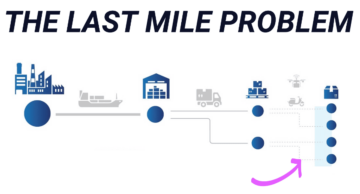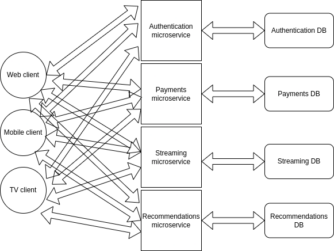
The short-term rental platform posted $1.9 billion in profits and $8.4 billion in revenue in 2022, a 40 percent surge from a year earlier, according to executives during a full-year and 4Q earnings call Tuesday afternoon.
In these times, double down — on your skills, on your knowledge, on you. Join us Aug. 8-10 at Inman Connect Las Vegas to lean into the shift and learn from the best. Get your ticket now for the best price.
Airbnb on Tuesday posted $1.9 billion in profit for 2022, its first full year in the black and an early indication of the short-term rental platform’s ability to withstand a broader economic slowdown, according to an earnings call Tuesday.
Fueled by a surge in demand and daily rates that grew 36 percent since 2019, Airbnb generated $8.4 billion in revenue last year — a 40 percent increase from 2021 — as investors clamored to rent out homes while the pandemic subsided with the emergence of a COVID vaccine. Overall, it was a banner year for a short-term rental platform that, in 2021, posted a loss of $352 million.
Airbnb, Chesky said, is committed to focusing on customer service and affordability for guests in 2023, with the company forecasting a slight drop in average daily rates later this year.
The company has been making changes over the past year aimed at balancing the power dynamic between renters who stay in homes on Airbnb and the investors or homeowners who make their homes available to short-term renters. It has vowed to make more.
The focus on affordability may already be taking its toll: Average daily rates (ADRs), or the base price to book an Airbnb listing, declined from the third quarter to the fourth. It fell from $156 to $153, the company reported.
The decline appeared to be an isolated dip in an otherwise upward arc over the past several years as both supply and demand continue to grow, executives said.
Then they gave short-term rental investors who use the platform a sort of warning: Expect rates to drop in 2023, as well.
The company recently changed its algorithm to prioritize listings that guests have found provide good value for the price. The company is also working on new tools that let hosts see the total costs guests are paying for their rentals. Company officials said that might help hosts set their daily rates appropriately for the home they’re providing.
“When we started, we started as an affordable alternative to hotels,” Chesky said. “I think affordability and value is one of the key reasons people use Airbnb.”
A decline in average daily rates would also eat into revenue for the company, which collects a 3 percent “take fee” from hosts. Chief Financial Officer Dave Stephenson said the company would continue to grow modestly while keeping costs down to brace for the drop in revenue from lower ADRs.
“I know that I can also afford, with our headcount, profitability improvement that can offset the ADR declines,” Stephenson said.
It comes as more people sought to make money by renting out their homes on Airbnb and as the company makes changes aimed at increasing supply, like making it easier to become a host. The company reported ending the year with 6.6 million active listings worldwide, over 900,000 more than it had at the beginning of the year excluding the inventory it lost in China when it left the country in July.
The company has $455 million in free cash flow, but it’s not gearing up to burn through it.
Rather, it would “keep enough cash for potential (mergers and acquisitions) opportunities, which may exist,” Stephenson said.
The company’s outlook is for a relatively flat year, and while it talked about improving affordability and customer experience, it has yet to unveil or promise major changes as it continues to benefit from a strong rebound in travel demand.
Guests are also continuing to make longer trips, with Airbnb shifting from a platform for two- or three-day stays to one that includes monthlong visits, Chesky said. One in five trips booked on Airbnb in the fourth quarter were for stays of 28 days or more.
Chesky touted the company’s ability to rapidly increase revenue with only a slight increase in employee headcount and despite the shock of COVID.
“If you think about what this team has been through the last three years, initially losing 80 percent of our business, (then) rebuilding our company from the ground up,” Chesky said. “This is a lot of momentum inside the company.”
Get Inman’s Property Portfolio Newsletter delivered right to your inbox. A weekly roundup of news that real estate investors need to stay on top, delivered every Tuesday. Click here to subscribe.
- SEO Powered Content & PR Distribution. Get Amplified Today.
- Platoblockchain. Web3 Metaverse Intelligence. Knowledge Amplified. Access Here.
- Source: https://www.inman.com/2023/02/14/airbnb-notches-first-profitable-full-year-as-demand-surges-rates-fall/
- 000
- 10
- 11
- 2019
- 2021
- 2022
- 2023
- 28
- 9
- a
- ability
- About
- According
- acquisitions
- active
- ADRs
- afford
- affordable
- Airbnb
- algorithm
- already
- alternative
- and
- appeared
- appropriately
- approximately
- Arc
- around
- Aug
- auto
- available
- average
- banner
- base
- become
- Beginning
- benefit
- BEST
- between
- Billion
- Black
- book
- Brian
- broader
- burn
- business
- call
- Cash
- cash flow
- ceo
- Changes
- chief
- chief financial officer
- collects
- COM
- committed
- company
- Company’s
- Connect
- continue
- continues
- continuing
- Costs
- country
- Covid
- customer
- customer experience
- Customer Service
- daily
- Days
- Decline
- Declines
- delivered
- Demand
- Despite
- Dip
- doing
- double
- down
- Drop
- during
- dynamic
- Earlier
- Early
- Earnings
- earnings call
- easier
- eat
- Economic
- emergence
- Employee
- enough
- estate
- Every
- excluding
- executives
- expect
- experience
- Fall
- financial
- First
- flat
- flow
- Focus
- focused
- focusing
- found
- Fourth
- Free
- from
- from 2021
- full
- gearing
- generated
- get
- good
- Ground
- Grow
- guests
- help
- here
- Home
- Homes
- host
- hosts
- hotels
- HTTPS
- improvement
- improving
- in
- includes
- Increase
- increasing
- indication
- initially
- inventory
- Investors
- isolated
- IT
- join
- Join us
- July
- keeping
- Key
- Know
- knowledge
- Las Vegas
- Last
- Last Year
- LEARN
- listing
- Listings
- longer
- losing
- loss
- Lot
- major
- make
- make money
- MAKES
- Making
- Mergers and Acquisitions
- might
- million
- Momentum
- money
- more
- Need
- New
- news
- Newsletter
- Officer
- officials
- offset
- ONE
- opportunities
- otherwise
- Our Company
- Outlook
- overall
- pandemic
- past
- paying
- People
- percent
- platform
- Platforms
- plato
- Plato Data Intelligence
- PlatoData
- posted
- potential
- power
- presentation
- price
- Prioritize
- Profit
- profitability
- profitable
- profits
- promise
- provide
- providing
- Quarter
- rapidly
- Rates
- real
- real estate
- reasons
- rebound
- recently
- relatively
- Rent
- Rental
- rentals
- renters
- Reported
- revenue
- roundup
- Said
- service
- set
- several
- Shares
- shift
- SHIFTING
- short-term
- since
- skills
- Slowdown
- started
- stay
- Strategic
- strong
- subsided
- supply
- Supply and Demand
- surge
- Surges
- taking
- team
- The
- their
- Think
- Third
- this year
- three
- Through
- ticket
- times
- to
- tools
- top
- Total
- touted
- Trading
- travel
- Tuesday
- unveiled
- upward
- us
- use
- Vaccine
- value
- VEGAS
- Visits
- warning
- weekly
- What
- which
- while
- WHO
- working
- worldwide
- would
- year
- years
- Your
- zephyrnet












